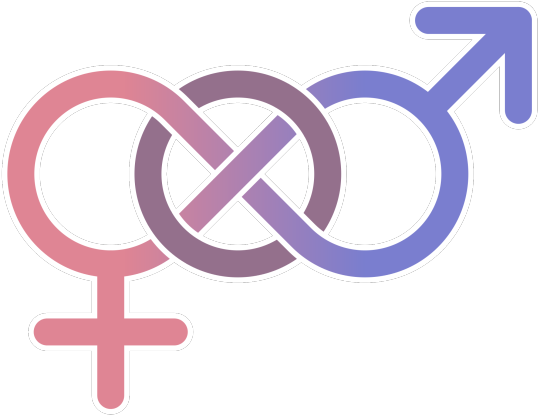Does anyone remember when “gender” and “sex” used to be synonyms?
Language constantly evolves, especially during times of social change. As America grows more and more PC nowadays, it can seem overwhelming to keep up with all the new words and acronyms that are “coming out,” if you will.
There are some magical people who just can’t identify with any confusion because they’re too wonderfully up-to date. Let’s take a moment to thank them for their service to our country. But for the rest of us civilians, it might seem like at this point, being politically correct requires at least a master’s degree.
This is why I’m going to be writing a 3-part series on sex, gender, and why they matter. So, if you found the Caitlyn Jenner situation difficult to understand, or you don’t know what “cis” means, or you’re bored sitting on the toilet, then stay tuned!
Hopefully by the end of this series, we’ll all be better equipped to handle any confusion in the future :)
The Gender Conundrum, Part 1: Genes, Gametes, and Sex, oh my!
Note: This article is all about sex. We will be exploring what modern sex is and why we have it. But before you get excited, just be aware that this is “sex” the classification, NOT the action. No NSFW material here!
To start, let’s remember that classifications are just ways that we, as humans, take nature and simplify it, often to perform a function. This is an important reference point for our discussion.
We all know that sex is generally a way of looking at someone’s body and putting them into one of two categories, male or female, and that it has a lot to do with a person’s naughty bits (teehee). This is a super basic understanding of sex, but it’s ok for now. We need to start thinking about why we have sex before we understand what exactly it means.
Sex: the WHY
So, why do we organize bodies this way? What is it useful for? Probably the most important answer to these questions is: medical care. Knowing a person’s sex is a shorthand way of knowing which medical conditions to look for. Examples: ovarian vs. testicular cancer, pregnancy, blueballs (lol jk). and tracking development in adolescence.
These are super important things to monitor, ergo: sex. Some lesser important reasons why sex is convenient: making sex-specific clothing (like bras and jock-straps), and finding the bad guy (or girl) in a murder case. Notice how I’m not saying things like “sex is important because it tells us what hairstyles we are allowed to have.” The two are unrelated. Clip-on bangs have nothing to do with sex. Sex is a medical term.
Ok, now we know why sex is a thing, and it’s time to hit you with the full definition. We’re skipping Merriam Webster and going straight to the experts at the American Psychological Association.
source: themamafesto.wordpress.com
The MEANING of “Sex”
“Sex refers to a person’s biological status and is typically categorized as male, female, or intersex (i.e., atypical combinations of features that usually distinguish male from female). There are a number of indicators of biological sex, including sex chromosomes, gonads, internal reproductive organs, and external genitalia” -APA
Interesting. In addition to the infamous “private parts,” sex is also related to genes and gonads, which regulate hormones. But the thing here that probably stands out the most is the third category: male, female, and intersex.
This may be surprising to some people. Society has developed rigidly binary ideas about sex, so it is easy to miss the fact that some people’s bodies do have sexual characteristics of both sexes (i.e- someone having both testes and a vagina). But intuitively, we can assume people’s’ bodies are different, so it makes sense that sexual characteristics vary. IMPORTANT: the familiar term “hermaphrodite” is both less accurate and more offensive than “intersex.” As a citizen of 2016, do not use the term “hermaphrodite.” (source: Intersex Association of North America)
Sadly, intersex people are not generally recognized in society because of such rigid expectations surrounding sex. In addition, some intersex people have been forced to have surgeries, take hormones, etc. in order to “fix” their bodies. In other words, to make them conform. This can be a very traumatic experience for an intersex person.
Our society has ignored the presence of intersex people even in language. Consider the words girl, boy, man and woman. These words each refer to 3 things: development (child/adult), sex (male/female), and species (human). We call an adult, female human a “woman.” But what do we call an adult, intersex human? Answer: we don’t.
This is concerning and I hope we can use this information to show respect to intersex people. By educating ourselves now, we may see intersex as a more widely accepted body-type in the future. And remember: always ask what pronouns to use when referring to someone you’ve just met.
That’s all for now; thanks for staying with me this far! Be ready for an upcoming article on gender and how it differs from/relates to sex.
Take-home questions: should we come up with words for adults and children who are intersex? Or should we decide to stop referring to sex altogether, and call a child “child” or an adult “adult,” regardless of its sexual classification? Let me know what you think!


